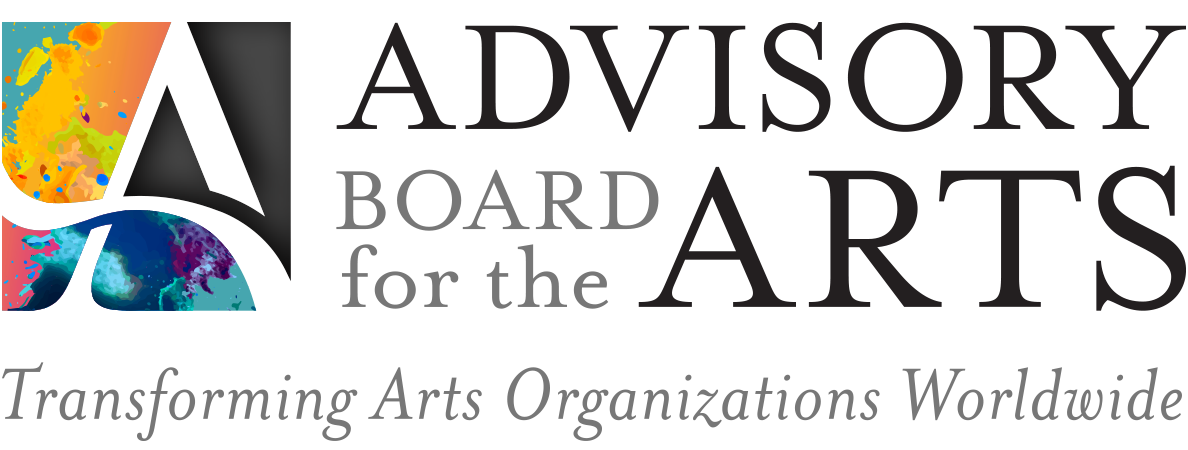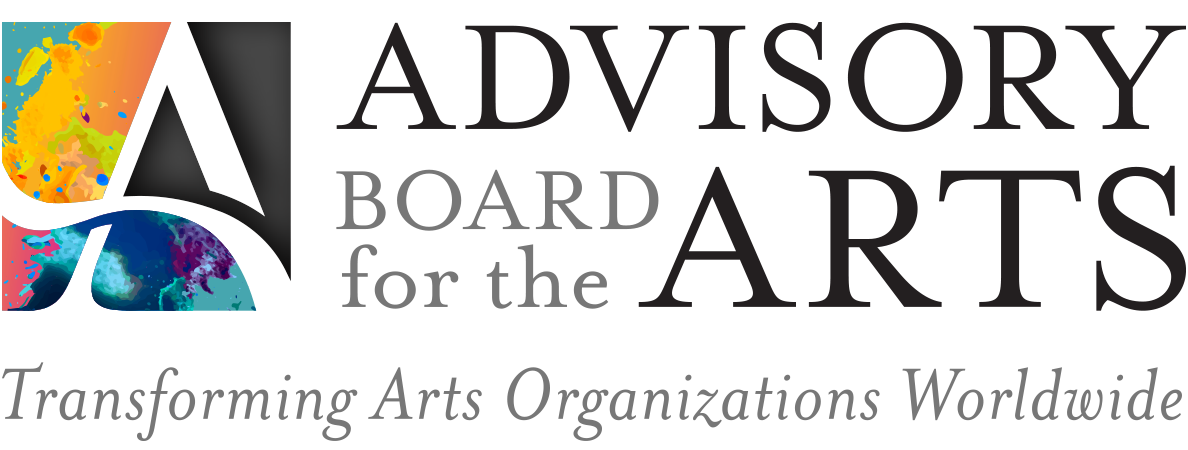Webinar Recap: Adapting Strategy in Uncertainty
April 21 (Replay at end of page)
On April 21st, The Advisory Board for the Arts hosted a webinar on Adapting Strategy in Uncertainty. We were fortunate to have two guests join us to share their perspective: David Bardolet, Associate Professor of Strategy & Entrepreneurship at the SDA Bocconi School of Management (Milan) and Edgar Dobie, Managing Director of Arena Stage in Washington, DC.
David provided excellent guidance on scenario planning during this unprecedented time, while Edgar generously shared his first-hand experience in managing Arena Stage’s response to the current situation and how they are planning for various scenarios in the future.
“My mother, a child of the Depression, used to say that misery loves company. I think I’d like to change that and coin the phrase uncertainty loves company”
Today’s Environment Is Characterized by Unknowns
Given arts organizations are operating in a world where virtually every key decision factor is unknown, they face a significant challenge in planning for the future. David used the “VUCA” framework to describe the current uncontrollable environment:
Volatility: Large changes in key business variables. In this phase, variables have the potential to move a lot, but it is in a relatively defined range.
Uncertainty: Difficulty in predicting key business variables. For example, when companies launch a new product, they do not know how customers will respond.
Complexity: Increased number of business variables. In this level, the previous two problems (volatility and uncertainty) are multiplied (e.g., a company branches out into a new market).
Ambiguity - Uncertainty about the fundamental models of reality. David described this as a harder version of uncertainty. In this level it is difficult to interpret information – the bounds of volatility are not known.
David emphasized that right now most organizations are in crisis management mode, which is very different than strategy planning. Rightly so, organizations have been heads down focused on how to solve immediate issues. However, David noted the importance of shifting to think about decision making that will set organizations up for success 12 to 18 months from now. When operating in a “VUCA” environment, organizations need to focus on resilience, become comfortable making decisions with less information, and start exploring new ideas models using a much faster test and learn strategy.
Scenario Planning for the Future
When asked about the greatest unknowns Arena Stage is facing while working through scenario planning, Edgar shared that is when will they be able to reopen safely and how will they reopen safely. The organization is currently planning for three potential scenarios:
Open back up in July with its traditional business model (Edgar acknowledged this is no longer likely)
Push re-opening to September or even to January and reduce season from 10 plays to 6 plays
Shut down the 2020-2021 season entirely
In each of these scenarios, they are considering the impact on revenue, staffing, and other necessary cost cutting measures, noting that they can no longer turn a blind eye to some inefficiencies that they have typically accepted in the past. Additionally, they are thinking through the impact on seating capacity, new sanitation procedures, the potential need to have formally trained greeters, ways to ensure a safe work environment for artists, among a multitude of other factors.
In terms of the triggers the organization will use to decide between the various scenarios, Edgar shared they will primarily look to the government authorities, health authorities, the limits of their own resources, and their board. David also suggested using other countries who are ahead of us in this experience as model for indicators on timing and ways of reopening.
As organizations continue in their scenario planning, we offer the following additional tips:
Include “all” plausible scenarios. It is not a forecasting exercise.
Stress-test your strategy against each scenario.
Identify 3 types of actions: No Regrets, Options and Big Bets.
No regrets: do it today and it will work quite well in most scenarios in the future. David suggested arts organizations’ investment in digital is a perfect example of this – even if we return to our traditional model, digital capabilities will surely be a worthy investment to provide greater opportunities for growth and engagement beyond the current crisis.
Options: these strategies work well in only 1-2 scenarios. David’s advice is not to commit right away but invest a little bit in these areas. As you get more indicators about which scenario is most likely, you can expand it.
Big bets: these strategies would work well in one scenario but would not be good in most.
Set key indicators/warning signals to track moving forward. Build a dashboard and keep a constant pulse on your defined indicators.
For additional information on scenario planning, check out our recent blog post: Scenario Planning: What Epidemiologists Suggest.
Talent Considerations
A number of webinar participants brought up questions around talent decisions during this time. Edgar shared that they made an early and very difficult decision to furlough 75% of their staff starting in May. As hard as it was, it necessary to keep the organization afloat. Interestingly, Edgar shared that the talent decisions were not based on seniority, but rather individuals’ level of flexibility to engage in other areas. They kept on individuals who weren’t frozen in their tracks and who will potentially be able to accept and new and different world moving forward. Their ability to bring all of their staff back will depend on what date they can ultimately open.
David’s perspective was to maintain the human resources that are absolutely critical to delivering your mission. Hard decisions will have to be made, but the people you keep and develop are what will give you an edge.
Finding New Opportunities
Toward the end of our webinar we shifted toward looking at how this time might actually create opportunities for organizations—perhaps a time to reexamine strongly held beliefs and consider alternative ways of how we might move forward. As David put it, structural breaks and disruptions typically signal to organizations that they likely need to stop doing “A” (what they have traditionally been doing) and start doing more of “B” (something else). Right now organizations are being forced to figure out what “B” is. David suggested the following process to help define “B”:
Brainstorm a portfolio of new initiatives
Conduct fast and cheap market testing
Measure results and learn
Scale, pivot, and abandon
David suggested that many of the experiments we are trying right now are aimed solely at survival, but he encourages organizations to bring more structure to it – identify two key variables you want to test and measure them through an experiment. He suggested starting small to limit the risk and not scare stakeholders. One example he shared was San Francisco Opera’s Opera Is On initiative, which the organization launched following the cancellation of their summer season.
Edgar shared how his education department had pivoted quickly to offer online courses and now plans to do the same for summer camps. They saw a huge appetite with kids being home from school and were able to adapt their offering quickly.
As arts organizations continue to navigate these challenging times and plan for the future, The Advisory Board for the Arts aims to be a sound source of guidance and support. Please check out all of our available resources in our Arts Resilience Center.



